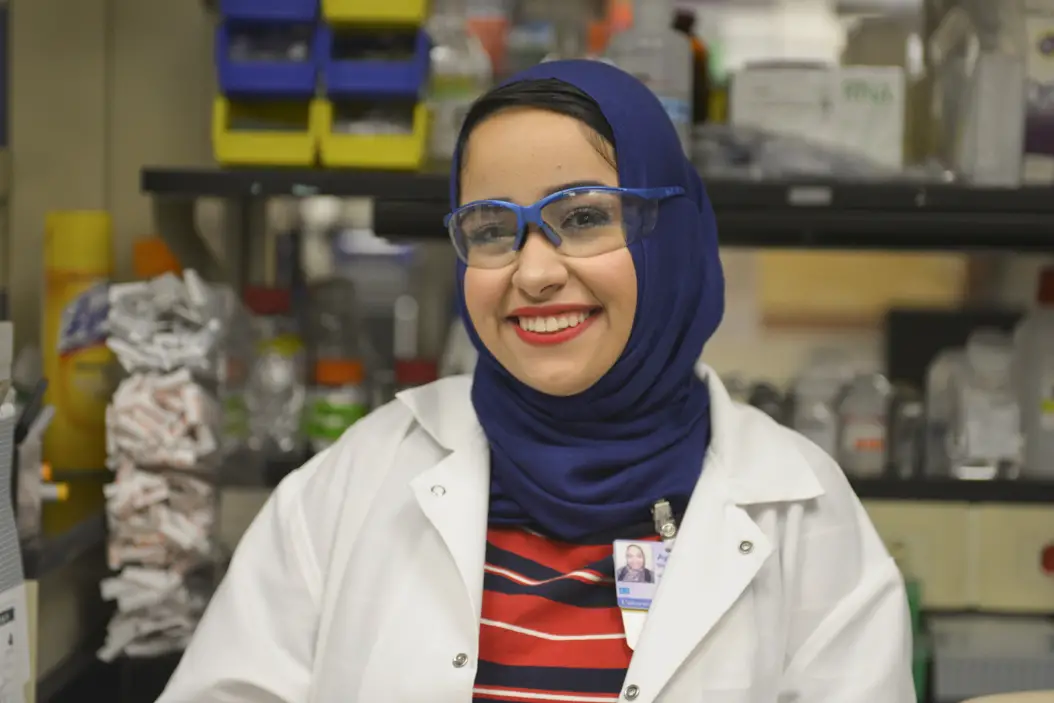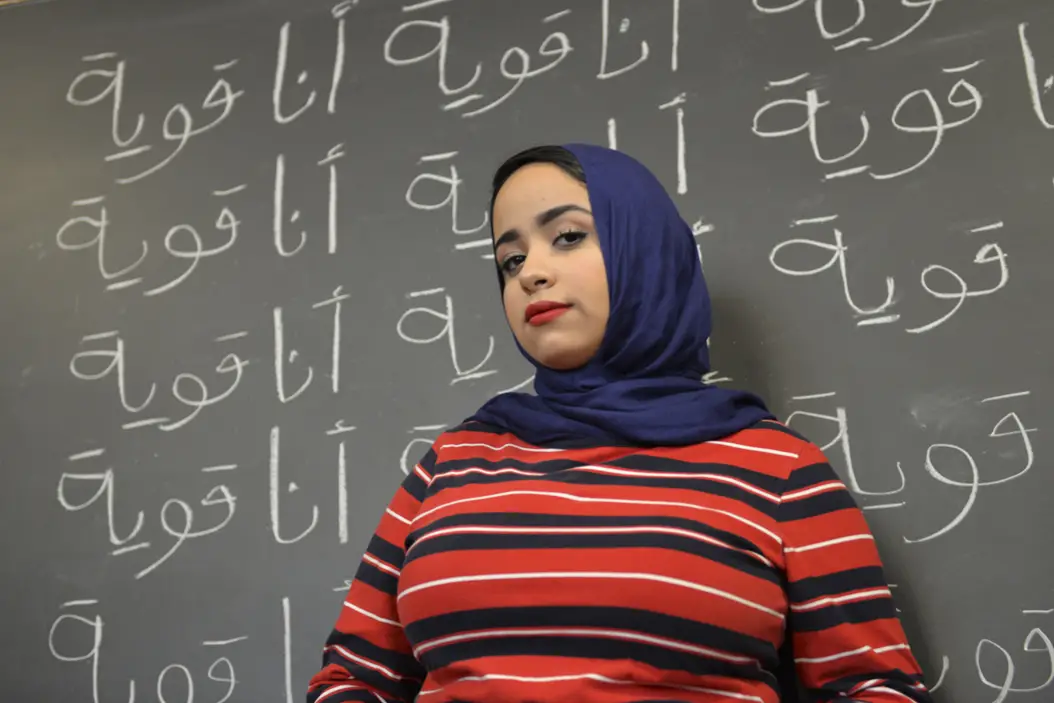Aya Shehata is a believer in faith and feminism, and she’s found a way to advocate for the two. “I think the most important distinction to be made is that faith and feminism are not mutually exclusive — in fact, in Islam, feminism is a core tenant.
Just because someone doesn’t practice the same faith as you, or the same feminism for that matter, doesn’t mean that their version is any less right. We need to understand that differences exist, and we must embrace that for all of its beauty,” she says.
With a major in Psychology and Sociology, a minor in Chemistry and a certificate in Arabic, it’s safe to say the University of Pittsburgh student and rising junior has some pretty hectic days. Researching in the morning, and studying or attending various meetings for the many student organizations she’s involved with by night, she laments it’s not easy to stay on top of everything.
“Everyone who knows me always jokes that I essentially never sleep, but I feel as though my college experience would be empty without the organizations I’m involved in,” she says.

Her busy days start off with research at Magee-Womens Research Institute & Foundation (MWRIF) where she’ll be starting her own research on the efficacy of metronidazole on the STI trichomonas vaginalis. Her research aligns with her future goals of attending medical school to get involved in women’s health. “I’d like to travel to third-world countries and provide medical services to underprivileged women, and educate them on their bodies and rights,” Shehata says.
One of Shehata’s many extracurriculars is working as a mentor for the Strong Women, Strong Girls program, where she is able to teach younger girls in areas where education isn’t really emphasized. The curriculum is based on female empowerment, and mentors visit weekly during a semester to talk about strong women in history and to stand as role models of women in higher education. “I’ve learned so much from these girls, but mainly I’ve learned to check my privilege,” she says.
“In my family, college is a given, so I never really thought anything of having that support system to make sure I achieved a bachelor’s degree. After mentoring these girls, it dawned on me that not everyone is as lucky to grow up in such a positive environment. That’s why the work I do with these girls is so important to me—I feel like since I was so privileged, it’s my duty to provide as much support as I can to anyone who needs it.”
Another organization Shehata is a part of is one she helped create. During the 2017-18 academic school year, Shehata will be president of the Female Empowerment Movement (FEM).
“I believe empowering women is really important, hence the name, and I felt as though a lot of the women’s organizations were lacking in that aspect — creating an environment where their physical constituents felt like they were being uplifted, and surrounded by that environment of strength,” Shehata says. FEM is a student organization focusing on how women can succeed outside of the college setting. One of their events, for example, focused on how women can negotiate salary in their careers, since there is still a present wage gap.
Her organization teamed up with the Pittsburgh branch of the American Association of University Women and Her Campus University of Pittsburgh to host the Remarkable Women Intersectionality Panel. Shehata was one of the panelists speaking at the event along with other women living and working in Pittsburgh. Panelists shared stories and anything relevant to any stereotype that has affected their lives as women. “It was such an honor to be sitting and talking about my experience as a Muslim woman,” she adds.

Shehata also serves as the female social chair for the Muslim Student Association at Pitt, which aims to combat stigma surrounding the faith of Islam. She moved up to social chair as a sophomore after serving as the freshman representative her first year at the university.
This past year, as social chair, Shehata created her own event in November called “Breaking Stereotypes” where anyone, not just those from the university, was invited to come write a stereotype they have been identified as on a piece of wood, and then break the wood in half.
Shehata also spends her time (what little she may have left of it) serving as volunteer coordinator for the Islamic Center of Pittsburgh Food Pantry. In two years, the ICP Food Pantry has distributed an estimated 12,669 pounds of food and toiletries to those in need. “It’s such an amazing experience being able to help so many people, Muslim and non-Muslim alike. Definitely the most rewarding thing I’m involved in,” Shehata says.
Shehata no doubt gets her hardworking spirit from her biggest inspiration — her mother. Not only did Shehata’s mother go through her residency with a child, in 2007, while her mother was working as a doctor, she was diagnosed with Stage 3c ovarian cancer.
“Even with her chemo treatments, she continued to work as a doctor and never allowed her disease to get the better of her,” Shehata says. “Looking back, it was hard to even remember that she was sick considering how normally she carried on with her life. Her ten-year diagnosis anniversary was this year, and I couldn’t be prouder to be her daughter.”
Through being so involved in college in different organizations and programs, Shehata has learned that having a strong support system is important, but so is showing your appreciation for those who provide support. “My family is so important to me — I wouldn’t be where I am today without all of their love,” she says.
You can find Shehata on Twitter and Instagram with her handle @beyoncaya.


















[…] faith and feminism in a way that can foster honest dialog and better understanding. In a profile on StudyBreaks.com, she says one of her core messages is to show that if feminism isn’t defined in one single […]